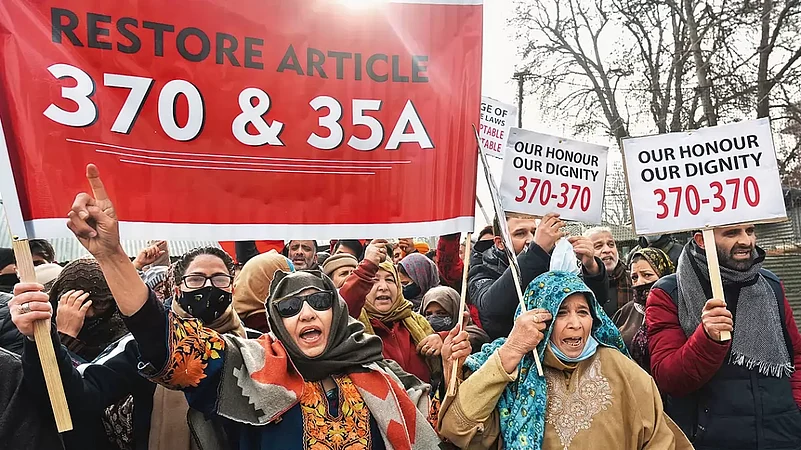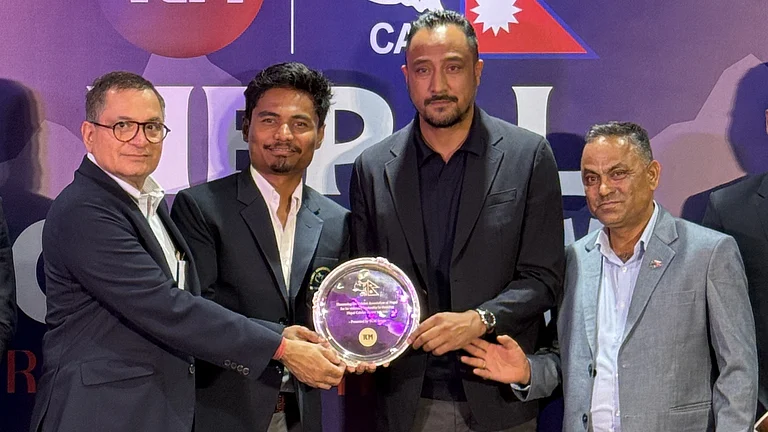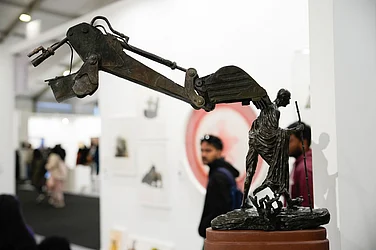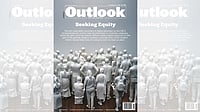On the eleventh day of the hearings challenging the abrogation of Article 370, Chief Justice of India DY Chandrachud stated that Article 35A, which defined “permanent residents” of Jammu and Kashmir and granted them special privileges, stripped others of their fundamental rights. Chandradhud’s remarks came in response to the arguments of Solicitor General Tushar Mehta, who stated that Article 35A artificially created a class of permanent residents who alienated the others, not falling under that category.
Heading a five-judge Constitution Bench, Chandrachud said, “Article 35A gave special rights and privileges to permanent residents and virtually took away the rights for non-residents. These rights included the right to equal opportunity of State employment, right to acquire property and the right to settle in Jammu and Kashmir.”
Chandrachud observed that Article 35A was violative of Article 16(1) (equality of job under State government) which preserves the right of employment under the state government.
Arguing before the Bench, Mehta, for the Government of India, submitted, “...Article 35A further mandated that any law which provides for these special privileges to this class would not violate fundamental rights like Articles 14 (right to equality), 19 (1)(f) and 31 (then right to property), 19(1)(e) (right to settle anywhere in the country) and even Article 21 (right to life and personal liberty) and 22 (protection against preventive detention). That demarcating line between permanent residents and non-residents did this for decades together. It was unthinkable in a constitutional democracy… the Government of India with the State government of Jammu and Kashmir added Article 35A.”
What is Article 35A?
Article 35A was part of Article 370, which granted special status to Jammu and Kashmir until it was scrapped in 2019 by the BJP government. Article 370, allowed the state its own constitution, a separate flag and independence over all matters except foreign affairs, defence and communications.
Article 35-A deals with empowering the Jammu and Kashmir Constitution to define “permanent residents” of the state.
It also empowers the Jammu and Kashmir Legislature to confer on permanent residents or state subjects special rights and privileges in public sector jobs, acquisition of property in the state, scholarships and other public aid and welfare.
The law came into place during the Dogra times, when Maharaja Hari Singh passed it in 1927 allegedly after acting on the urging of Kashmiri Hindus who were apprehensive of hiring Punjabis in civil services. The law was enacted to prevent the influx of Punjabis into the state.
Later, in 1954, an amended version of the law was added through the Constitution (Application to Jammu and Kashmir) Order, 1954 issued by the President of India (Rajendra Prasad) on aid and advice of Jawaharlal Nehru cabinet. It replaced the 1952 Delhi Agreement between Nehru and the then Prime Minister of J&K Sheikh Abdullah, which extended Indian citizenship to the ‘State subjects’ of J&K.
Under the Jammu and Kashmir Constitution, which was adopted on November 17, 1956, a permanent resident is one who has been living in the State as of May 14, 1954, or who has been a resident of the state for 10 years, and has "lawfully acquired immovable property in the state".
Why has it been controversial?
The first petition filed by an NGO, We The Citizens, against Article 35A, linked to RSS, said Article 35 A is against the “very spirit of oneness of India” as it creates a “class within a class of Indian citizens”. It contended that “Restricting citizens from other States from getting employment or buying property within Jammu and Kashmir is a violation of fundamental rights under Articles 14, 19 and 21 of the Constitution.”
Article 35A had been largely seen as a way to protect the state’s demography. It has been a long point of contention between Kashmiris and the ruling BJP government, which had contemplated abrogating Articles 370 and 35A for long.
Following the abrogation of Article 370, Muslim-majority Kashmiris have debated that the move will make way for Hindu right wings to encourage a Hindu migration to the state. It also defies India’s promise to protect the special status of Jammu and Kashmir.
Many have also contended that the law was against women, as it prohibited property rights to women who would marry anyone from outside, who would not be considered a ‘permanent resident’ of the state.


























